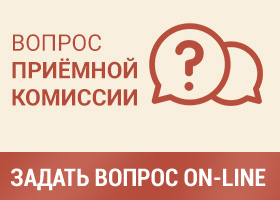
Новости/Архив
Москва 9-10 октября 14
Опубликовано 22.09.2014
From: Casado, Barbara [mailto:Barbara.Casado@bseurope.com]
Sent: Monday, September 01, 2014 4:09 PM
Cc: SCARAMUZZO Nicola (EEAS-MOSCOW); Invernizzi, Sara; Bondar, Yaroslava
Subject: ()Invitation to the International Conference "Joint Education Programmes between European and Russian Universities". Moscow, 9-10th October 2014
Brussels, Moscow, 1st September 2014
Dear Sir/Madam,
The Delegation of the European Union to Russia (Delegation), together with the National Erasmus+ Office (NEO), is pleased to invite you to the International Conference
Moscow, 9-10 October 2014
Holiday Inn Hotel Suschevsky -Moscow, Suschevsky val, 74
The conference will be the occasion to present and discuss the Final Report on Joint Programmes and the Catalogue of Joint Programmes between European and Russian Universities.
Subjects of the conference include among others definition and state of play of Joint Programmes in Europe and in Russia, the seven dimensions of European and Russian Joint Programmes, the voices and Students and Professors. The conference will be also the occasion to present the new call Erasmus+ programme for Russia.
The colleague responsible for the Conference at the Delegation is Nicola Scaramuzzo (Nicola.scaramuzzo@eeas.europa.eu).
To confirm you participation please register to the web http://www.amiando.com/JointEducationProgrammesConference
not later than the 17th September 2014. Please, when asked, kindly insert the promotion code “Attendee”.
For more information, please contact Ms. Yaroslava Bondar (Yaroslava.Bondar@bseurope.com) or Ms Barbara Casado (Barbara.Casado@bseurope.com).
Yours sincerely,
signed
Sven-Olov CARLSSON
Background
This Conference on 9-10 October in Moscow is the occasion to discuss the Report on Joint Education Programmes (Joint Programmes) between European and Russian Higher Education Institutions. The Report is complemented by a Catalogue of examples of successful Joint Programmes. The Conference will be also an opportunity to present the latest information of the Call for Applications of Erasmus+ programme for Russia, due to be issued at the end of September 2014.
The Report and the Catalogue of Joint Programmes are the outcome of a Study carried out for the Delegation of the European Union to Russia in two phases: in 2009-2010 and between January 2013 and October 2014. The overall objective of the Study is to contribute to the development of the European Higher Education Area (EHEA) and to the implementation of the Bologna Process within the framework of the EU/ Russia’s Common Space on Science and Education.
The development of Joint Programmes finds its place in the internationalisation strategies of Universities eager to open up and transform their educational processes into modern and innovative approaches, across borders and across institutions. There are many routes to initiate collaborative programmes with Universities in other parts of the world. These are highly dependent on the particular profile of a University, its organisational culture and the regional or national contextual environment in which it is located.
The Conference will give account of the existing definitions and experiences of Joint Programmes and discuss the state of play of Joint Programmes in Europe and in Russia. In this context, special attention will be paid to the seven key-dimensions and related sub-dimensions that characterize different developmental levels of EU-Russia Joint Programmes, namely:
- Institutional partnership composition - Looser to more strategic partnerships
- Programme design and delivery– Fragmented to real jointness
- Student mobility paths – Ad-hoc to structured mobility paths
- Recognition of study abroad – None, partial to full recognition
- Degree types – Single (Joint), Double, Certificate
- Programme management – From individual to institutional integrated arrangement
- Quality assurance – Internal and external arrangement
Joint Programmes are complex forms of collaboration that face a whole range of challenges from national legislations, institutional boundaries, a lack of clarity in the internationalisation strategy, resources, linguistic and cultural issues. A number of examples and checklists for action on how to overcome the challenges will be discussed at the Conference.
The development of international Joint Programmes creates tremendous possibilities for students and for institutions. Students gain new knowledge and skills from their exposure to universities in other parts of the world, either from mobility paths or through other forms of intercultural experiences delivered at home. There is growing evidence to demonstrate that an international education enhances students’ opportunities on the labour market. Students are also the best ambassadors of Joint Programmes. The Conference will greatly benefit from the experience of Students, Professors and Administrators of Joint Programmes.
B&S Europe on behalf of the EU Delegation to Russia
